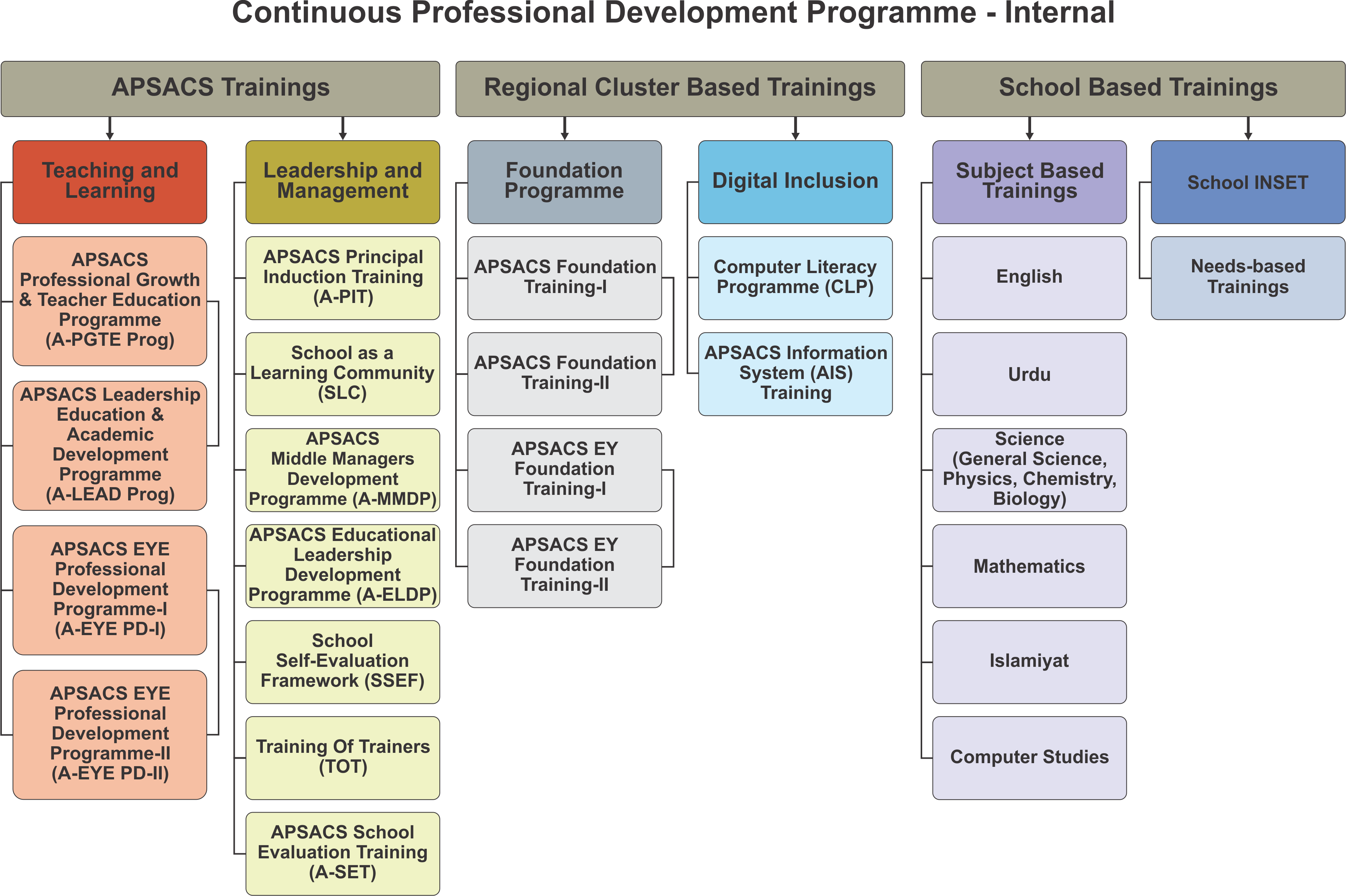training & evaluation
Trg&Eval Established In 2005 Heads Of Department Over the Years

Key Features of the Department
Continuing Professional Development
- Development of training content based on needs analysis, regularly reviewed and updated to meet the challenges of constantly changing pedagogies
- CPD training imparted by qualified and validated trainers by University of London and British Council
- Free of cost training offered to APSACS teachers and school leaders at multiple venues across the country for professional excellence
- Online training courses, workshops and webinars for maximum outreach Subject specific and Book-based training for engagement with the curriculum framework in greater depth

ARITE

APSACS School Evaluation
- A Three-Pronged Evaluation Process including:
- Ongoing School Self Evaluation Framework for review and improvement planning
- Regional Director’s Annual Formal and Informal Evaluation
- APSACS Secretariat Biennial Evaluation
- Upholding the highest professional standards and basing judgement and informed decisions on a broad range of evidence
- Sharing schools’ strengths and areas for improvement and guiding schools for the next steps in development
- Tracking improvement in students’ learning outcomes through monitoring visits and follow-up, online and on-campus
- Diagnostic visits of newly established schools and extending needs-based support and guidance
APSACS School Awards APSACS confers School/Region wise awards based on School Evaluation in order to:
- celebrate institutional achievements and recognise individual accomplishments of top scoring schools
- provide motivation and incentives to schools to attain the desired educational standards through healthy competition
APSACS Mentorship Programme- Mentorship Programme is an APSACS endeavor to establish a lasting learning community of professional educators throughout APSACS Schools for:
- improvement in teaching/learning of a Mentee School by bridging the gap between theory and practice
- supporting Mentee Schools in setting pragmatic goals and overcoming challenges through constructive feedback
- providing guidance for optimum resource utilization